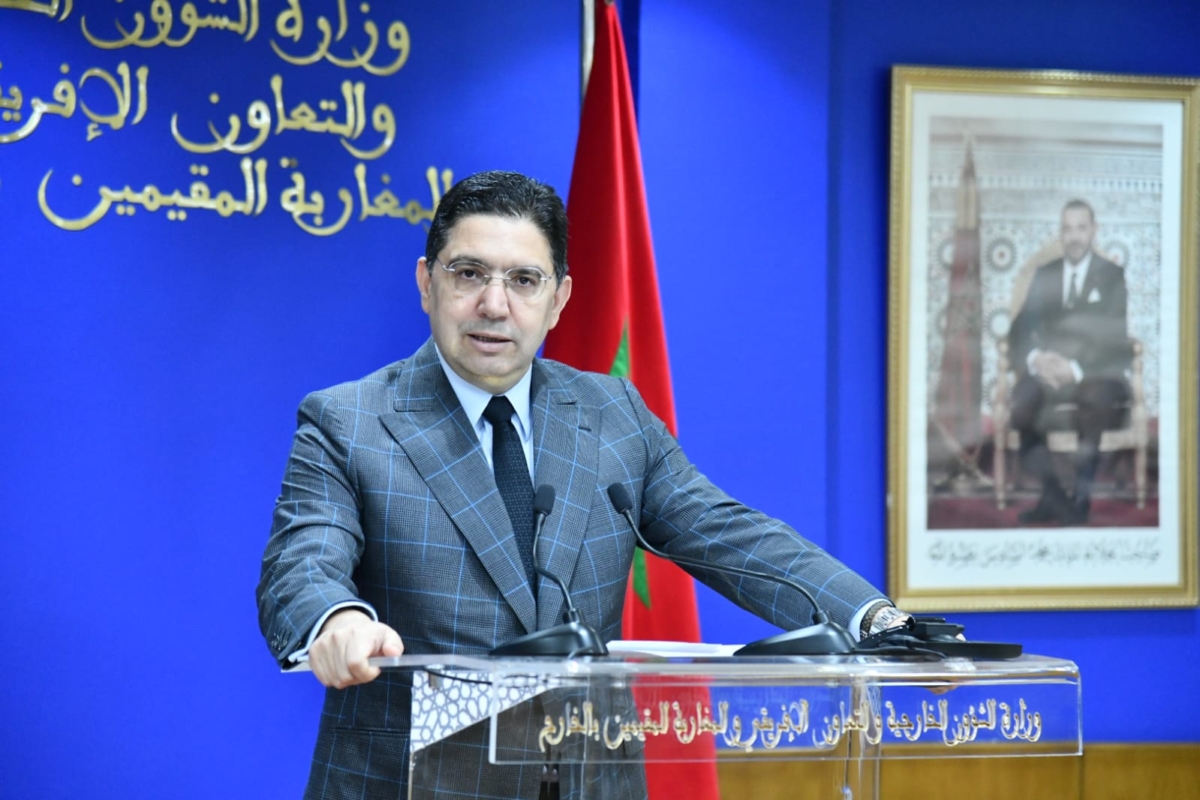The migration policy defined by King Mohammed VI is based on shared responsibility, the fight against stereotypes, and efforts against human trafficking networks, said the Minister of Foreign Affairs, African Cooperation, and Moroccan Expatriates, Nasser Bourita, on Tuesday in Rabat. He emphasized that the Kingdom of Morocco does not need to take lessons from others and fully assumes its responsibilities in combating illegal immigration.
Speaking at a press conference following his discussions with the president of the regional government of the Canary Islands, Fernando Clavijo, the minister stated that Morocco is fully engaged in addressing this phenomenon, noting that this fight requires a multidimensional approach that includes all factors contributing to such a scourge.
According to Bourita, the migration issue "is a shared responsibility between countries of origin, transit, and destination."
Referring to migration media coverage, he noted that it occupies a significant part of the domestic political agenda in some European countries, where it is even turned into "populist capital" with alarmist rhetoric that incites fear. In this respect, the Moroccan minister stated that, under the migration policy announced by His Majesty the King in 2013, Morocco has authorized the settlement of 60,000 migrants in the Kingdom.
On another note, he emphasized that Morocco is willing to repatriate any illegal migrant, provided they are Moroccan and departed from Moroccan territory, while questioning whether the other party is willing to do the same. Additionally, he praised the Moroccan-Spanish cooperation on immigration, describing it as exemplary in the Mediterranean region.
Bourita reaffirmed the shared responsibility between Morocco and Spain and their commitment to providing in-depth solutions to this issue by cutting off human trafficking networks and strengthening legislation governing migration.
For his part, Clavijo thanked the Kingdom of Morocco for its sustained efforts in combating irregular migration. "We are fully aware of the pressure and the geopolitical environment in the Sahel region. Morocco contributes to stability, peace, and the fight against human trafficking networks."
In this regard, he affirmed that the Canarian government is determined to strengthen bilateral collaboration, emphasizing that clarity, sincerity, and loyalty are the foundations of cooperation between the Canary Islands and Morocco.






